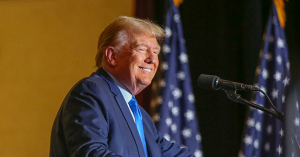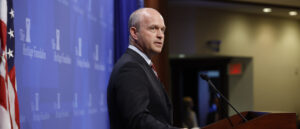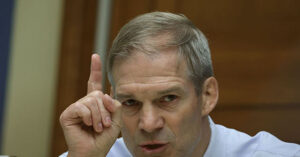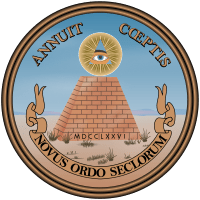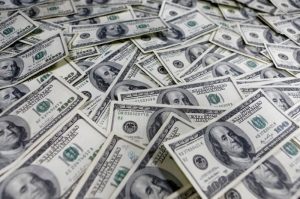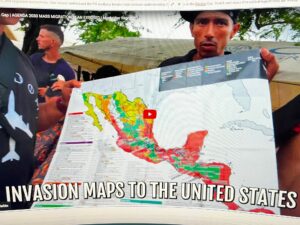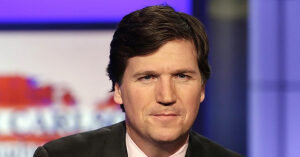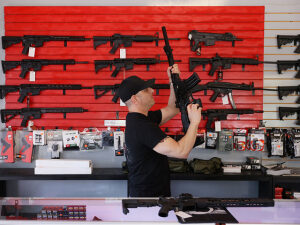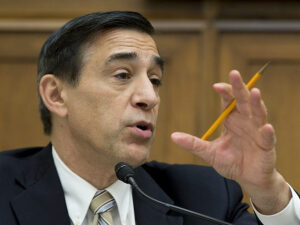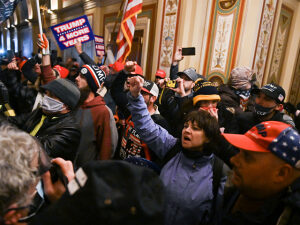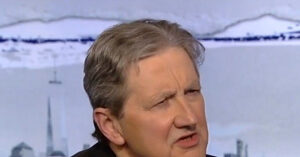Currency War
Currency war, also known as competitive devaluation, is a situation where countries compete against each other to achieve a relatively low exchange rate for their own currency. As the price to buy a particularly currency goes down so does the real price of exports from the country. Imports become more expensive and that helps the domestic industry increase sales. Of course, a currency war triggered by one nation could bring retaliatory action by other countries which in turn can lead to a general decline in international trade, harming all countries.
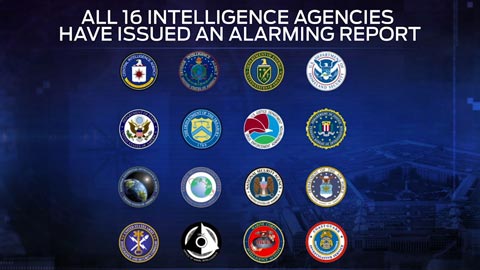 Guido Mantega, the Minister of Finance of Brazil, announced on September 27, 2010, that the world is “in the midst of an international currency war.” His view was accepted by numerous other government officials and financial journalist from around the world. During this time the United States complained over the evaluation of the yuan in China. The United States accused China of keeping the price its currency artificially low in order to keep United States and other nations exports out of China, thus creating an enormous trade imbalance against the United States and other countries. Of course, the United States was not an innocent bystander since it engaged in massive quantitative easing (QE).
Guido Mantega, the Minister of Finance of Brazil, announced on September 27, 2010, that the world is “in the midst of an international currency war.” His view was accepted by numerous other government officials and financial journalist from around the world. During this time the United States complained over the evaluation of the yuan in China. The United States accused China of keeping the price its currency artificially low in order to keep United States and other nations exports out of China, thus creating an enormous trade imbalance against the United States and other countries. Of course, the United States was not an innocent bystander since it engaged in massive quantitative easing (QE).
Quantitative easing is the practice in which a central bank, such as the Federal Reserve Bank of the United States, tries to fight a recession or to stimulate a slow-growing economy by increasing the money supply of the nation. It has printed over $3.1 trillion since President Obama came to power in January 2009. The enormous annual deficits of the federal government in excess of $1 trillion over several years have increased the federal debt to more than $17.5 trillion.
Sadly, the real debt of the United States, when one includes the enormous debts of the states, counties, and municipalities as well as the unfunded entitlements of Social Security, Medicare, Medicaid, and Obama Care, is estimated to be in excess of $150 trillion. James Rickards, an advisor to the CIA and the Pentagon, estimates that $127 trillion is the national debt of the unfunded entitlements. James G. Rickards believes the real inflation in America is 9% and the real unemployment is 23% when one includes those people who are no longer looking for jobs because they cannot find them.
James G. Rickards and his alarming books and video
James G. Rickards is an American lawyer, economist, and investment banker. He is the author of Currency Wars: The Making of the Next Global Crisis, published in 2011, and The Death of Money: The Coming Collapse of the International Monetary System, published in 2014. James Rickards wrote Currency Wars: The Making of the Next Global Crisis (2011) describing the dangerous battlefield of global finance. He pointed out how China is purchasing secretly up to 4,000 tons of gold. Some believe that China has already over 5,000 tons of gold since it is acquiring gold mines throughout the world and continue to purchase secretly more gold.
Rickards argues that currency wars are not just an economic or monetary concern, but a national security concern. He maintains that the United States is facing serious threats to its national security, from clandestine gold purchases by China to the hidden agendas of sovereign wealth funds and that greater than any single threat is the very real danger of the collapse of the dollar itself. Rickards explains that the Federal Reserve is involved in what he calls “the greatest gamble in the history of finance,” via a sustained effort to stimulate the economy by printing money on a trillion-dollar scale.
Rickards also wrote on the hidden agendas of sovereign wealth funds of nations that hate us which may attack the United States financially. Rickards is convinced these two situations are a very real threat to the collapse of the dollar. Rickard’s second book, The Death of Money, was released on April 8, 2014.
THE DEATH OF MONEY: The Coming Collapse of the International Monetary System BY James Rickards
KIRKUS REVIEW OF THE DEATH OF MONEY
Kirkus Review is an outstanding publication that assists universities, schools, and libraries to purchase important books. Below is its review of The Death of Money:
“Behind Door No. 1 is inflation. Behind Door No. 2 is deflation. Neither is pretty—however, assures financial counselor and intelligence adviser Rickards (Currency Wars: The Making of the Next Global Crisis, 2011), one or the other lies in our path.
The thought that the world’s economic systems are doomed to collapse anytime soon might be dismissed as the stuff of the tinfoil-hat crowd. Quickly entering into the realm not of paranoia but of fiscal wonkiness, Rickards examines the many ways this might come about—through financial cyber terrorism, for instance, or simply the unwieldiness of banks too big to fail but that surely will. “Large banks are not necessary to global finance,” he writes, and particularly dangerous to the health of the world economy is their flourishing trade in derivatives, which “serve practically no purpose save to enrich bankers through opaque pricing and to deceive investors through off-the-balance-sheet accounting.”
“On the matter of off-the-sheet calculations, Rickards notes that the common excuse—that times may be tough but at least we don’t have inflation—is a smoke screen: Allowing for alternative methods of accounting, real inflation is probably 9 percent annually, gauged by the prices of milk, bread and other inelastic goods. Rickards rides an old hobbyhorse of fiscal conservatives, namely, the tragedy of our abandonment of the gold standard (under Richard Nixon, of all presidents) and the desirability of readopting it—and real gold at that, and not its derivatives. Though the collapse he foretells will induce chaos, he assures his readers that it is not necessarily inevitable, though avoiding it is unlikely. As he writes in a rare moment of drama, as the dollar’s 9/11 moment approaches, the system is blinking red. A mostly accessible survey of the financial scene. Readers take note: Buy gold, land and art—and hunker down.”
The three currency wars
James Rickards wrote that the Federal Reserve attempts to prop up economic growth could be devastating for our national security. He argues that a financial attack against the United States could destroy the confidence in the dollar. He believes that the policy of quantitative easing by the Federal Reserve would lead to a lack confidence in the dollar which could create chaos in the global financer markets. Rickards argues that we are currently going through a third currency war based on competitive devaluations. He believes that competitive devaluations are in race to the bottom, and those instruments are a sort of warfare. He argues that the continued depreciation and devaluation of the dollar will ultimately lead to a collapse, which will come about through a widespread abandonment of the U.S. dollar.
Rickards explained that the two previous currency wars ended badly. The first one brought about the Great Depression and World War II. It was started when Germany, unable to pay back the enormous war reparations to Great Britain, France and other countries after being defeated in World War I, decided to seriously devalue the German mark. The other countries did the same with their currencies as well as the United States. Soon high tariffs were imposed and world trade collapsed. The world-wide Great Depression resulted in Adolph Hitler and Benito Mussolini coming to power in Germany and Italy.
The second currency war of 1971 was started by Charles De Gaulle in France. President Richard Nixon was forced to abandon the gold standard and imposed for a while price controls in order to protect the value of the dollar. While the outcome of the current currency war is still uncertain, our nation needs to prepare to make certain that our economy and our currency are not destroyed by nations that wish us harm.
James Rickards believes that the dollar will collapse in the near future as an international currency. He thinks that the United States might enter into a depression that would last for approximately 25 years. If the dollar collapses, Rickards has stated that the International Monetary Fund (IMF) has a currency available to use worldwide. It is called special drawing rights (SDRs). Below is a description by the IMF of its currency the SDR written on March 25, 2014:
Special Drawing Rights (SDRs)
“The SDR is an international reserve asset, created by the IMF in 1969 to supplement its member countries’ official reserves. Its value is based on a basket of four key international currencies, and SDRs can be exchanged for freely usable currencies. With a general SDR allocation that took effect on August 28 and a special allocation on September 9, 2009, the amount of SDRs increased from SDR 21.4 billion to around SDR 204 billion (equivalent to about $316 billion, converted using the rate of March 12, 2014).”
The role of the SDR
“The SDR was created by the IMF in 1969 to support the Bretton Woods fixed exchange rate system. A country participating in this system needed official reserves—government or central bank holdings of gold and widely accepted foreign currencies—that could be used to purchase the domestic currency in foreign exchange markets, as required to maintain its exchange rate. But the international supply of two key reserve assets— gold and the U.S. dollar—proved inadequate for supporting the expansion of world trade and financial development that was taking place. Therefore, the international community decided to create a new international reserve asset under the auspices of the IMF.
However, only a few years later, the Bretton Woods system collapsed and the major currencies shifted to a floating exchange rate regime. In addition, the growth in international capital markets facilitated borrowing by creditworthy governments. Both of these developments lessened the need for SDRs.
The SDR is neither a currency, nor a claim on the IMF. Rather, it is a potential claim on the freely usable currencies of IMF members. Holders of SDRs can obtain these currencies in exchange for their SDRs in two ways: first, through the arrangement of voluntary exchanges between members; and second, by the IMF designating members with strong external positions to purchase SDRs from members with weak external positions. In addition to its role as a supplementary reserve asset, the SDR serves as the unit of account of the IMF and some other international organizations.”
Basket of currencies determines the value of the SDR
“The value of the SDR was initially defined as equivalent to 0.888671 grams of fine gold—which, at the time, was also equivalent to one U.S. dollar. After the collapse of the Bretton Woods system in 1973, however, the SDR was redefined as a basket of currencies. Today it consists of the euro, Japanese yen, pound sterling, and U.S. dollar. The value of the SDR in terms of the U.S. dollar is determined daily and posted on the IMF’s website. It is calculated as the sum of specific amounts of the four basket currencies valued in U.S. dollars, on the basis of exchange rates quoted at noon each day in the London market.
The basket composition is reviewed every five years by the Executive Board, or earlier if the IMF finds changed circumstances warrant an earlier review, to ensure that it reflects the relative importance of currencies in the world’s trading and financial systems. In the most recent review (in November 2010), the weights of the currencies in the SDR basket were revised based on the value of the exports of goods and services and the amount of reserves denominated in the respective currencies that were held by other members of the IMF. These changes became effective on January 1, 2011. In October 2011, the IMF Executive Board discussed possible options for broadening the SDR currency basket. Most directors held the view that the current criteria for SDR basket selection remained appropriate. The next review will take place by 2015.”
The SDR interest rate
“The SDR Interest rate provides the basis for calculating the interest charged to members on regular (non-concessional) IMF loans, the interest paid to members on their SDR holdings and charged on their SDR allocation, and the interest paid to members on a portion of their quota subscriptions. The SDR interest rate is determined weekly and is based on a weighted average of representative interest rates on short-term debt instruments in the money markets of the SDR basket currencies.”
SDR allocations to IMF members
“Under its Articles of Agreement (Article XV, Section 1, and Article XVIII), the IMF may allocate SDRs to member countries in proportion to their IMF quotas. Such an allocation provides each member with a costless, unconditional international reserve asset. The SDR mechanism is self-financing and levies charges on allocations which are then used to pay interest on SDR holdings. If a member does not use any of its allocated SDR holdings, the charges are equal to the interest received. However, if a member’s SDR holdings rise above its allocation, it effectively earns interest on the excess. Conversely, if it holds fewer SDRs than allocated, it pays interest on the shortfall. The Articles of Agreement also allow for cancellations of SDRs, but this provision has never been used. The IMF cannot allocate SDRs to itself or to other prescribed holders.
General allocations of SDRs have to be based on a long-term global need to supplement existing reserve assets. Decisions on general allocations are made for successive basic periods of up to five years, although general SDR allocations have been made only three times. The first allocation was for a total amount of SDR 9.3 billion, distributed in 1970-72, and the second allocated SDR 12.1 billion, distributed in 1979-81. These two allocations resulted in cumulative SDR allocations of SDR 21.4 billion. To help mitigate the effects of the financial crisis, a third general SDR allocation of SDR 161.2 billion was made on August 28, 2009.
Separately, the Fourth Amendment to the Articles of Agreement became effective August 10, 2009 and provided for a special one-time allocation of SDR 21.5 billion. The purpose of the Fourth Amendment was to enable all members of the IMF to participate in the SDR system on an equitable basis and rectify the fact that countries that joined the IMF after 1981—more than one fifth of the current IMF membership—never received an SDR allocation until 2009. The 2009 general and special SDR allocations together raised total cumulative SDR allocations to SDR 204 billion”.
Buying and selling SDRs
“IMF members often need to buy SDRs to discharge obligations to the IMF, or they may wish to sell SDRs in order to adjust the composition of their reserves. The IMF may act as an intermediary between members and prescribed holders to ensure that SDRs can be exchanged for freely usable currencies. For more than two decades, the SDR market has functioned through voluntary trading arrangements. Under these arrangements a number of members and one prescribed holder have volunteered to buy or sell SDRs within limits defined by their respective arrangements. Following the 2009 SDR allocations, the number and size of the voluntary arrangements has been expanded to ensure continued liquidity of the voluntary SDR market. The number of voluntary SDR trading arrangements now stands at 32, including 19 new arrangements since the 2009 SDR allocations.
In the event that there is insufficient capacity under the voluntary trading arrangements, the IMF can activate the designation mechanism. Under this mechanism, members with sufficiently strong external positions are designated by the IMF to buy SDRs with freely usable currencies up to certain amounts from members with weak external positions. This arrangement serves as a backstop to guarantee the liquidity and the reserve asset character of the SDR.”
Geoff Dyer’s book
Geoff Dyer wrote a book entitled The Contest of the Century: the New Era of Competition with China– and How America Can Win (2014). Dyer is a former British Financial Times newspaper bureau chief in Beijing and who lived in China for many years. He argued that the real currency war for the next few decades is the contest between China and the United States over which currency will prevail as the global currency.
Dyer described in detail the ambitious plan to allow the Chinese currency to play a larger role in the global economy. A HSBC’s Chinese economist stated the following: “We could be on the verge of a financial revolution of truly epic proportions. The world is slowly, but surely, moving from greenbacks to redbacks.” Another Washington-based economist said that the Chinese renminbi could become “the premier reserve currency by the end of this decade, or early next decade.” China has designated Hong Kong and the international place for the world’s new global currency, the renminbi. HSBC predicts that by 2015 at least half of China’s trade with the developing world, approximately $2 trillion, will be in renminbi.
Dyer, explained that the issue of whether the renminbi will supplant the dollar is one of the central contest that will determine the shift of power from the United States to China over the course of the next few decades, a combination of high finance and geopolitics. He wrote that the National Intelligence Council, which publishes the United States government’s official intelligence estimate stated the following: “The fall of the dollar as the global reserve currency… Would be one of the sharpest indication of the loss of the United States global economic position, strongly undermining Washington’s political influence.”
Both China and Russia have announced that they want to destroy the dollar as the global reserve currency. If they were to succeed in displacing the dollar with the Chinese currency, America will no longer be a superpower. Both China and Russia believe that the United States under the Obama administration has become “a paper tiger” and that the United States is a superpower in retreat and decline.
Hillary Clinton shortly after she became Secretary of State stated “how do you deal toughly with your banker?” China has the largest foreign exchange reserves in the world, at around $3.3 trillion. It is estimated that China owns around $2 trillion of United States government’s debt. Never before has the United States depended on a single country’s government for so much financing. Obama’s irresponsible annual deficits and his refusal to reform the entitlements have put our national security in serious danger. Our nation is facing a fiscal abysm.
When the United States announced in 2010 that it wanted to sell more weapons to Taiwan, three generals of the People Liberation Army said that China should retaliate by selling U.S. government debt, which could lead to a sharp rise in the United States interest rates. Reporters have written in Chinese newspaper what they call “the nuclear option”, which is a threat to dump dollar bonds in order to change American policy.
There is no question that China wants to destroy the dollar as an international currency. China’s President Hu Jintao said in 2008 that he wants a “new international financial order that is fair, just, inclusive and orderly.” Dyer explained that by the end of 2012, around 15% of China’s trade was being conducted in renminbi. He wrote that one Chinese academic said that ending the dominance of the dollar is as important for China’s ability to project power as was China become a nuclear power.
During the 2007 war games in Russia, with the leaders of the military alliance the Shanghai Cooperation Organization (SCO) member nations in attendance, including Chinese President Hu Jintao, Russia’s President Vladimir Putin stated that Russian strategic bombers were going to resume regular long-range patrols for the first time since the Cold War. Putin said the following: “Our pilots have been grounded for too long. They are happy to start a new life.” Iran is not yet a member of this alliance. It is an observer nation. An Iranian official said at the meeting that “the SCO is a good venue for designating a new banking system which is independent from the international banking systems.” The Russian leader stated the following: “We now clearly see the defectiveness of the monopoly in world finance and the policy of economic selfishness. To solve the current problem, Russia will take part in changing the global financial structure so that it will be able to guarantee stability and prosperity in the world and to ensure progress. The world is seeing the emergence of a qualitatively different geopolitical situation, with the emergence of new centers of economic growth and political influence.”
Geoff Dyer wrote the following: “There certainly is no shortage of reasons for thinking that the United States could be heading for the sort of crisis that would shake the foundation of the dollar era. The litany is a familiar one– high debt levels, chronic budget deficits, political gridlock, spiraling entitlement spending, and crumbling infrastructure… It is not completely out of the question that the United States will suffer a financial convulsion. The downgrading of the United States government debt by Standard and Poor’s was a stark warning about the potential erosion of the confidence in the dollar. Ever since then, Washington has been living from one budget crisis to another.”
Conclusion
President Barack Obama and Congress need to put rapidly our financial house in order. Failure to do so will create hyperinflation, increased unemployment and a possible economic recession or even worse a depression. Our nation needs to move aggressively to reduce government spending and our federal debt in order to protect the value of the dollar. China will soon surpass the U.S. economy. China will continue working together with Russia to replace the dollar as the world’s international currency. Our nation needs to act now and reform all entitlement programs since all of them are unsustainable in the long-term. The United States needs start living within its means.

